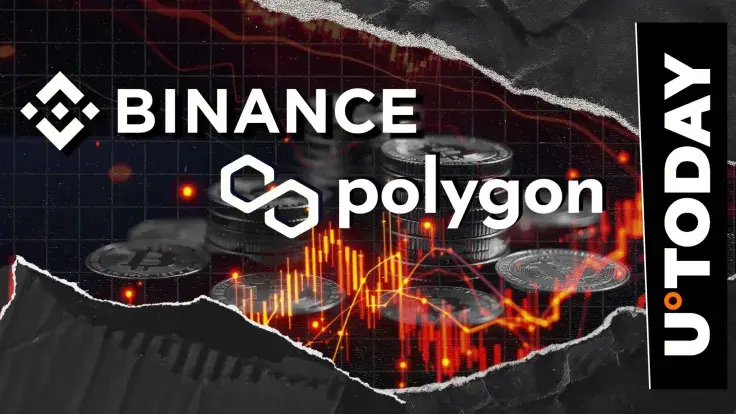
Disclaimer: The opinions expressed by our writers are their own and do not represent the views of U.Today. The financial and market information provided on U.Today is intended for informational purposes only. U.Today is not liable for any financial losses incurred while trading cryptocurrencies. Conduct your own research by contacting financial experts before making any investment decisions. We believe that all content is accurate as of the date of publication, but certain offers mentioned may no longer be available.
Major crypto exchange Binance has announced support for the Polygon (POL) network upgrade and hard fork, scheduled for Oct. 8, 2025.
In this light, at 1:12 p.m. (UTC) on Oct. 8, 2025, Binance stated it will suspend deposits and withdrawals of tokens on the Polygon (POL) network to support its network upgrade and hard fork to ensure the best user experience. However, trading on the Polygon network will not be impacted.
The Rio mainnet network upgrade and hard fork will take place at the block height of 77,414,656, or approximately on Oct. 8 at 2:12 p.m. (UTC).
Deposits and withdrawals for tokens on the Polygon network will be reopened once the upgraded network is deemed to be stable; however, no further announcement will be posted.
More on Rio Hard fork
Rio upgrade enables the next steps in Polygon’s GigaGas roadmap, as the network continues to evolve core architecture to meet the needs of global payments and RWAs.
Rio redesigns the network’s validator set for efficiency and introduces stateless block verification to reduce validator costs and eliminate reorgs. The Rio upgrade sets the stage for Polygon PoS to reach 5,000 TPS.
Included in this upgrade are PIP-64, "Validator-Elected Block Producer," which outlines a new block production architecture for Polygon PoS, shifting power from protocol code to validator choice by introducing a Validator-Elected Block Producer (VEBloP).
PIP-65, "Economic Model for VEBloP," defines an economic model with a fee redistribution mechanism between the active block producer and the validator set, designed to function alongside PIP-64.
PIP-72, "Witness-Based Stateless Verification," enables nodes to validate blocks without maintaining the complete blockchain state. This cuts storage bloat, speeds up sync and lowers hardware costs.
 Vladislav Sopov
Vladislav Sopov Dan Burgin
Dan Burgin